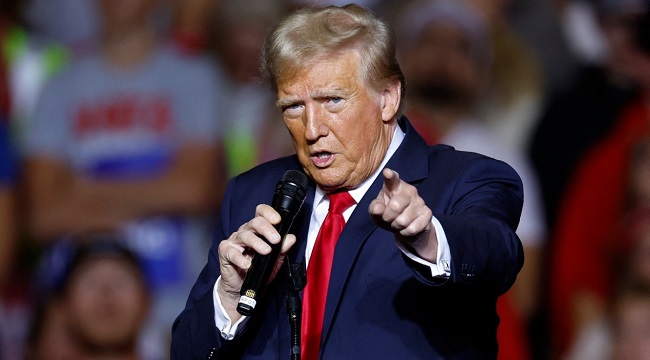
President-elect of the United States, Donald Trump announced plans on Monday, November 25, 2024, to impose sweeping tariffs on goods entering the United States from Mexico, Canada, and China.
The proposed tariffs, which include a 25% duty on goods from Mexico and Canada and a 10% levy on Chinese imports, are part of his broader strategy to address illegal immigration, drug trafficking, and trade imbalances.
In a series of posts on his Truth Social account, Trump confirmed the tariffs would be among his first executive actions upon taking office on January 20, 2025.
“On January 20th, as one of my many first Executive Orders, I will sign all necessary documents to charge Mexico and Canada a 25% tariff on ALL products coming into the United States, and its ridiculous Open Borders,” Trump wrote.
He further stated, “China will face a 10% tariff, ‘above any additional Tariffs,’ on all its products entering the US for its failure to address fentanyl smuggling.”
Tariffs as a Cornerstone of Economic Policy
The proposed tariffs are a continuation of Trump’s economic agenda, which emphasizes protectionism and using trade duties as leverage to secure more favorable agreements with trading partners. During his campaign, Trump repeatedly pledged to bring back manufacturing jobs and reduce dependency on foreign goods.
Critics, however, warn of potential economic fallout. Economists caution that tariffs could increase consumer prices, hurt economic growth, and strain relationships with key trading partners.
“Tariffs are ultimately paid by importers, who pass those costs to consumers. This can lead to inflationary pressure, especially when applied broadly to essential goods,” noted a senior economist at the Brookings Institution.
Supporters Praise the Move
Supporters of Trump’s tariff plan, including members of his inner circle, argue that the measures are necessary to protect American industries and address critical issues like drug trafficking.
“Tariffs are a powerful tool to level the playing field and protect American workers,” said an advisor to the president-elect. “These actions will help bring jobs back to the United States and ensure our trade agreements prioritize American interests.”
The tariffs, if implemented, would significantly impact U.S. trade relations with its largest partners, potentially reshaping the global trade landscape.








